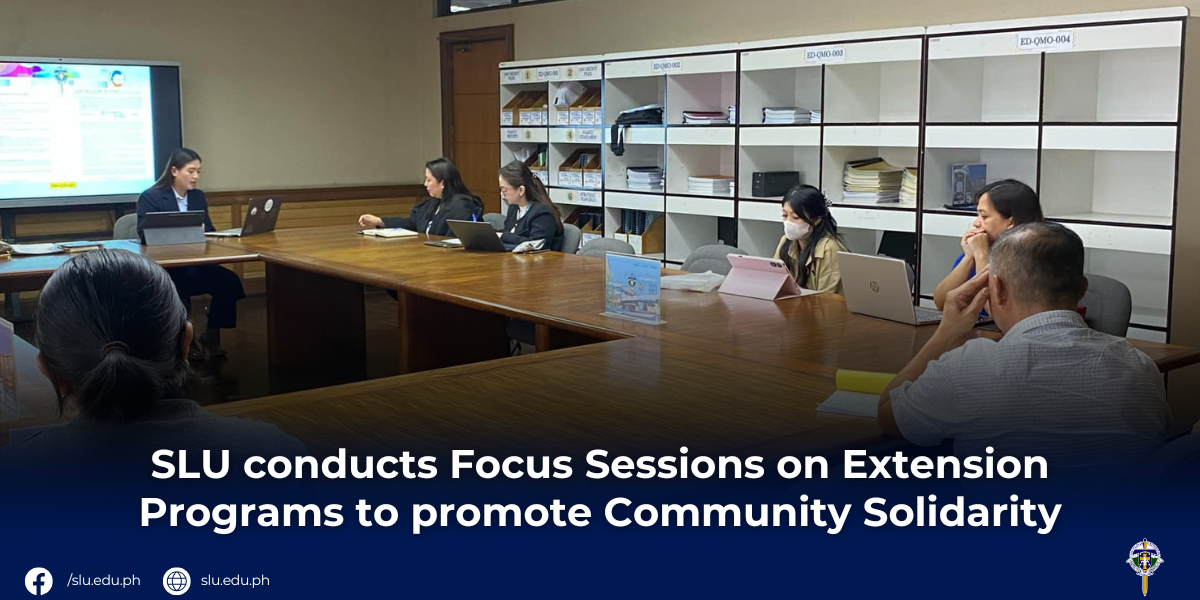From 8-12 October 2024, Saint Louis University (SLU) conducted focus sessions to orient different Schools in the University on the Manual Operating Procedures and Guidelines of community engagement and address concerns about extension programs across various departments, highlighting the university’s commitment to Binnadang (community solidarity) and the importance of service and volunteerism in enriching local communities.
STELA Focus Session
The first session on 8 October began with the School for Teacher Education and Liberal Arts (STELA), which centered on enhancing teaching practices by fostering creativity and leadership in education. The session emphasized innovative teaching and learning strategies that empower educators and partners in the mission to inspire and lead, while promoting a culture of creativity and critical thinking. The gathering was designed to explore how extension programs can leverage innovative strategies to support community development and address the evolving needs of learners.
STELA’s Extension Program Coordinators shared a series of discussions on enhancing communication and information operation through technical training and system development, training on mental health care assistance programs, addressing unique learning needs through identification and integration of students with visual impairment, capacity building for Professional Education teachers on curriculum quality audit, enriching philosophy with Saint Francis Xavier Orientation Seminary, empowering Diocesan Schools, and building Christian Spirit through catechetical formation into extension programs.
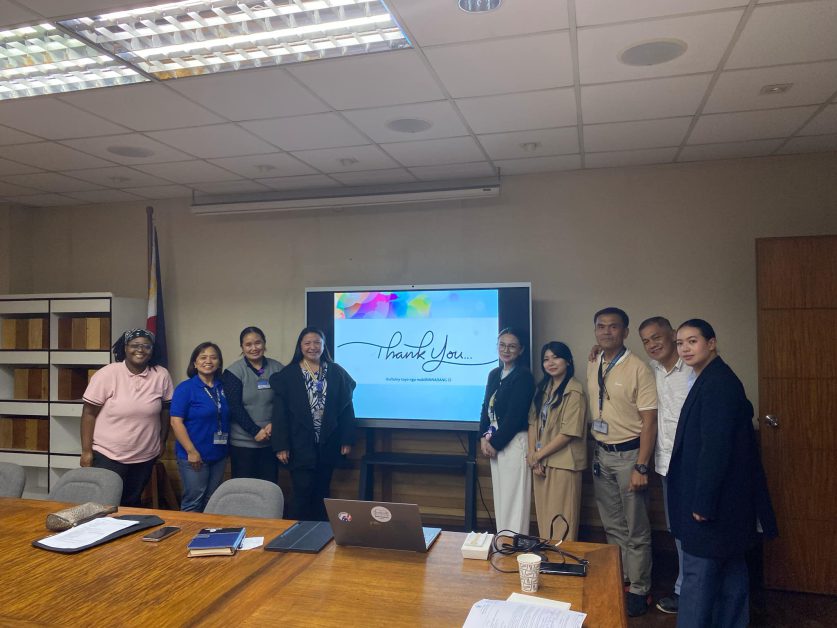
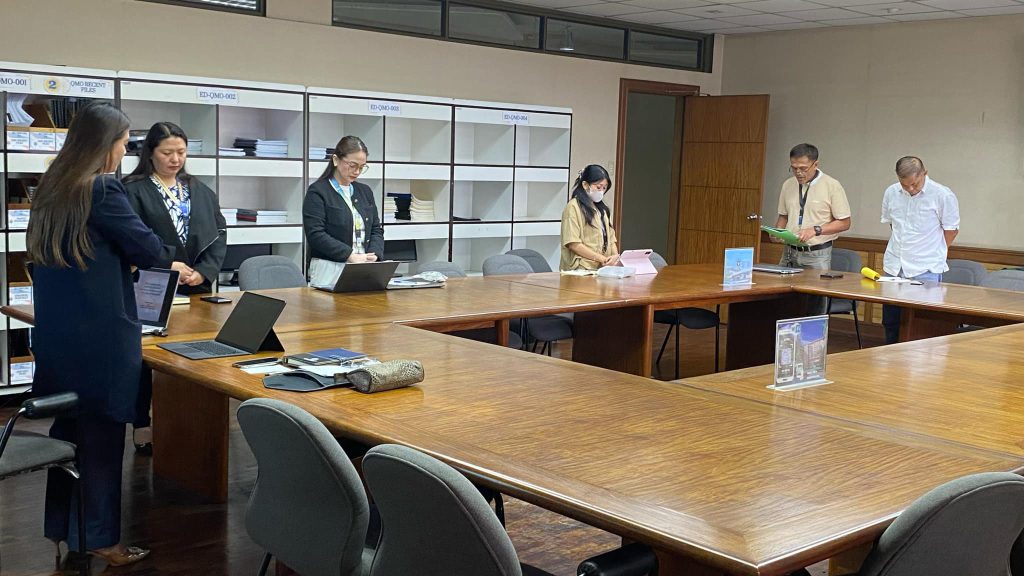
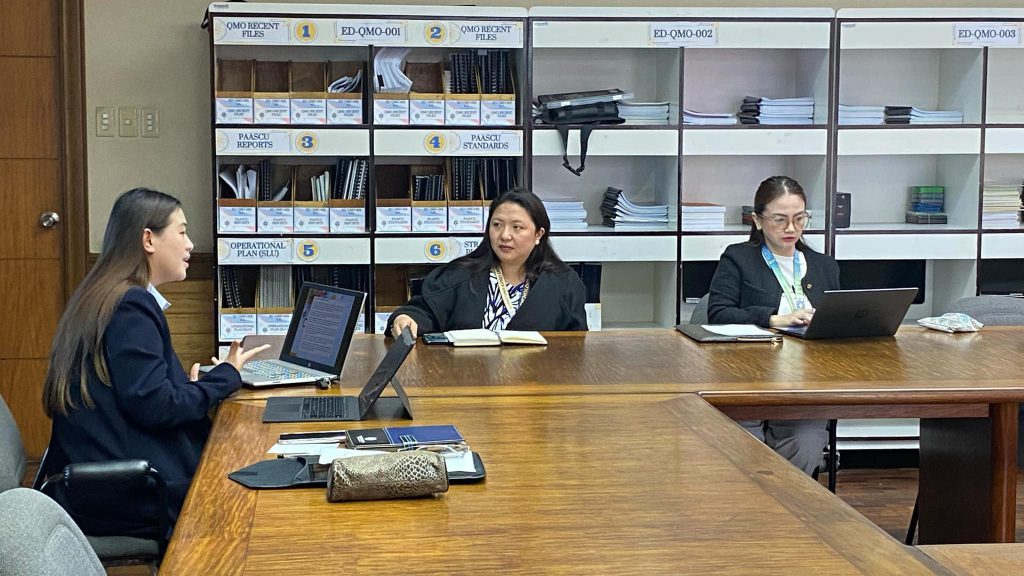
SONAHBS Focus Session
On 9 October, the Focus Session continued at the School of Nursing, Allied Health, and Biological Sciences (SONAHBS). The session at SONAHBS focused on building leadership capacity among Extension Program Coordinators and equipping them with the skills necessary to lead effective, community-oriented initiatives.
One of the key discussions revolved around creating sustainable partnerships with local allied health and community organizations to amplify the impact of extension programs. The day also featured a dialogue on managing and scaling community-based initiatives while ensuring long-term engagement and success.
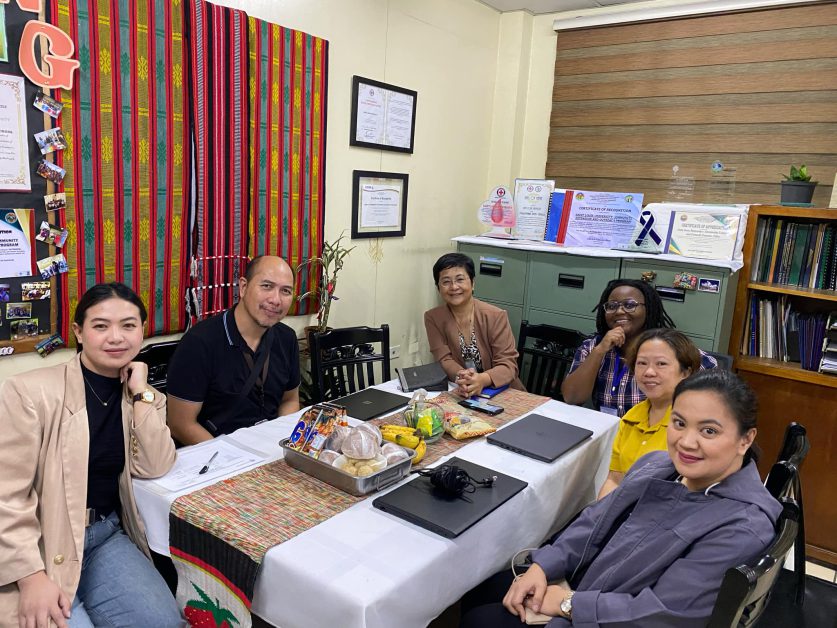
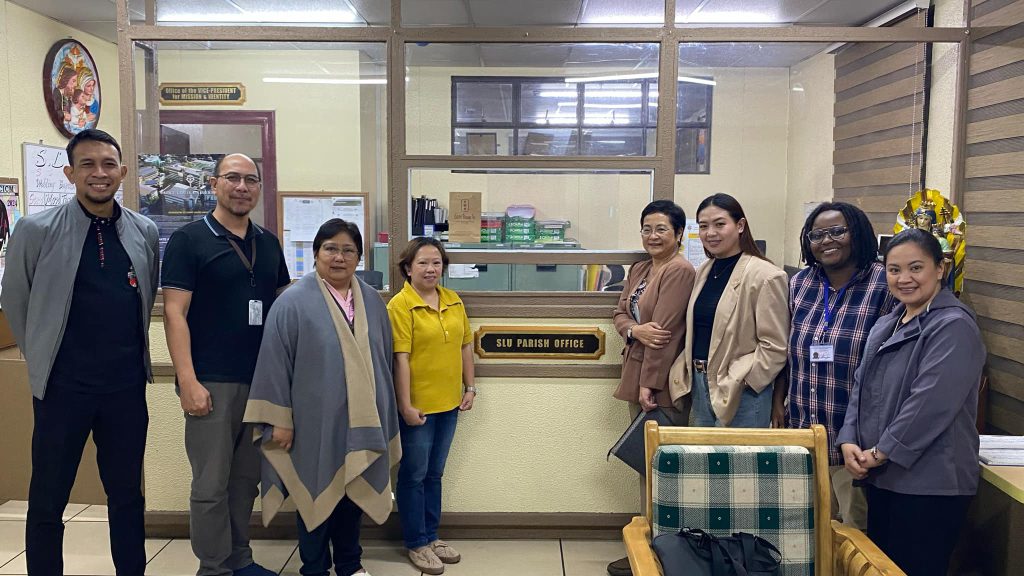
SAMCIS Focus Session
The focus session is on 11 October at the School of Accountancy, Management, Computing, and Information Studies (SAMCIS). This session centered on enhancing innovative and sustainable outreach within extension programs, an area of growing importance in fostering educational equity and preparing communities for the future.
The SAMCIS team highlighted the importance of making business and marketing initiatives accessible and engaging for all learners, regardless of their socio-economic background. Coordinators shared their extension activities that could be easily implemented in local communities.
Topics included establishing long-term sustainable “Mapteng” Ube products for the Banangan women in Sablan, Benguet, developing community projects through coffee tourism, coffee production, and coffee profiling for Sitio Domolpos, and sustaining cacao products in Tublay, Benguet, through propagation, product standardization, production, registration, marketing, promotion, and commercialization.
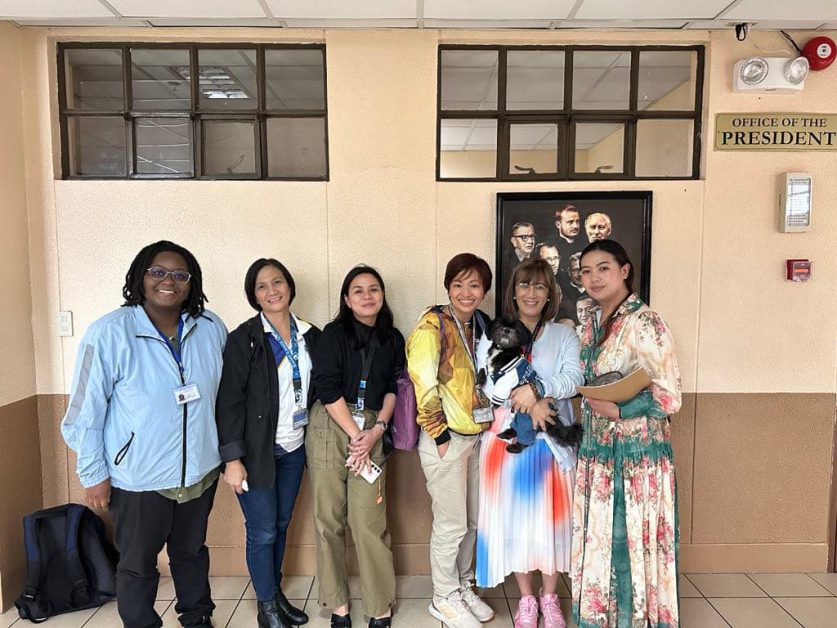
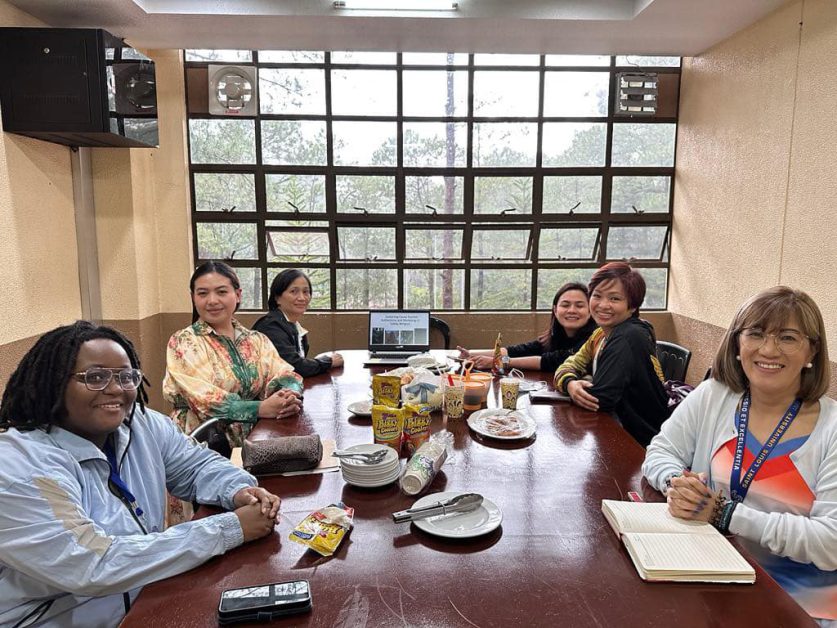
SEA Focus Session
The final day of the focus session took place on 12 October with the School of Engineering and Architecture (SEA) and focused on environmental studies and sustainability. The session ALSO centered on integrating sustainability and social responsibility into extension programs, reflecting the growing need to address environmental challenges and promote sustainable development.
SEA’s coordinators led a series of discussions on how extension programs can integrate environmental education and sustainability practices. Topics covered included exploring the use of economical and solar-powered street lamps at Barangay Happy Hallow, implementing a comprehensive 5S program, developing a computer-based hazard map for Virac, Itogon and Benguet; compost monitoring, quality assessment, and compost application to promote urban gardening at Holyghost Barangay, and enhancing instruction for electronic engineering through SLU ECE-developed browser-based simulators. The session also explored the importance of social responsibility in extension work, focusing on how extension programs can empower communities to take action on local environmental issues.
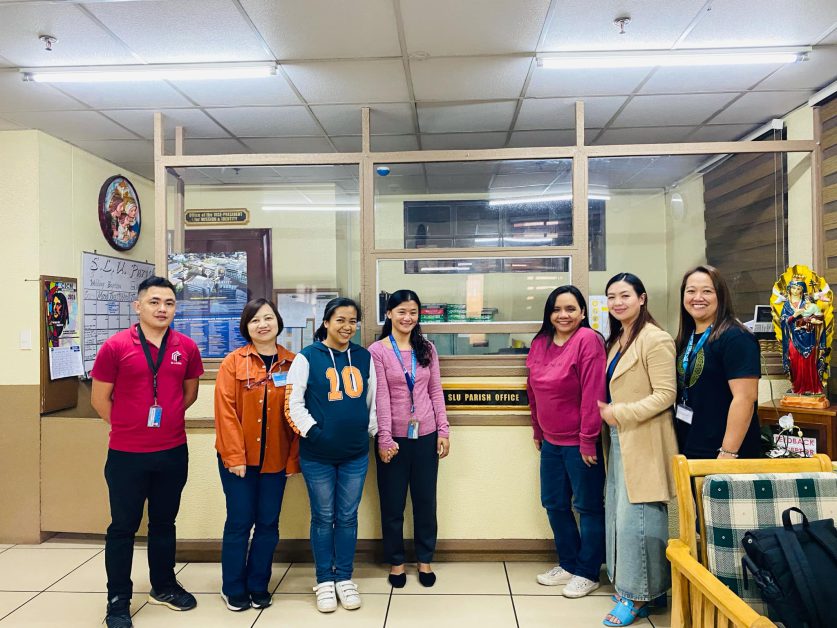
Focus Session Culmination
The sessions culminated on 12 October, where they discussed future partnerships and community impact. By connecting various departments, the university aims to implement comprehensive community service initiatives that address diverse social needs. At the heart of these sessions is the purpose of service and volunteerism in community development, fostering a sense of responsibility and solidarity among faculty. As they engage in extension programs, participants enhance their professional growth while positively impacting the community.
In conclusion, the focus sessions demonstrated SLU’s dedication to community service, shaping future leaders, and fostering a culture of empathy and cooperation. Aligned with the United Nations Sustainable Development Goals (UN SDG) 4 (Quality Education), 9 (Industry, Innovation, and Infrastructure), 11 (Sustainable Cities and Communities), and 17 (Partnership for the Goals), this commitment to Binnadang ensures the university remains a vital partner in addressing community needs, paving the way for a brighter, more inclusive future. (Article and Photos by CEOPO)

